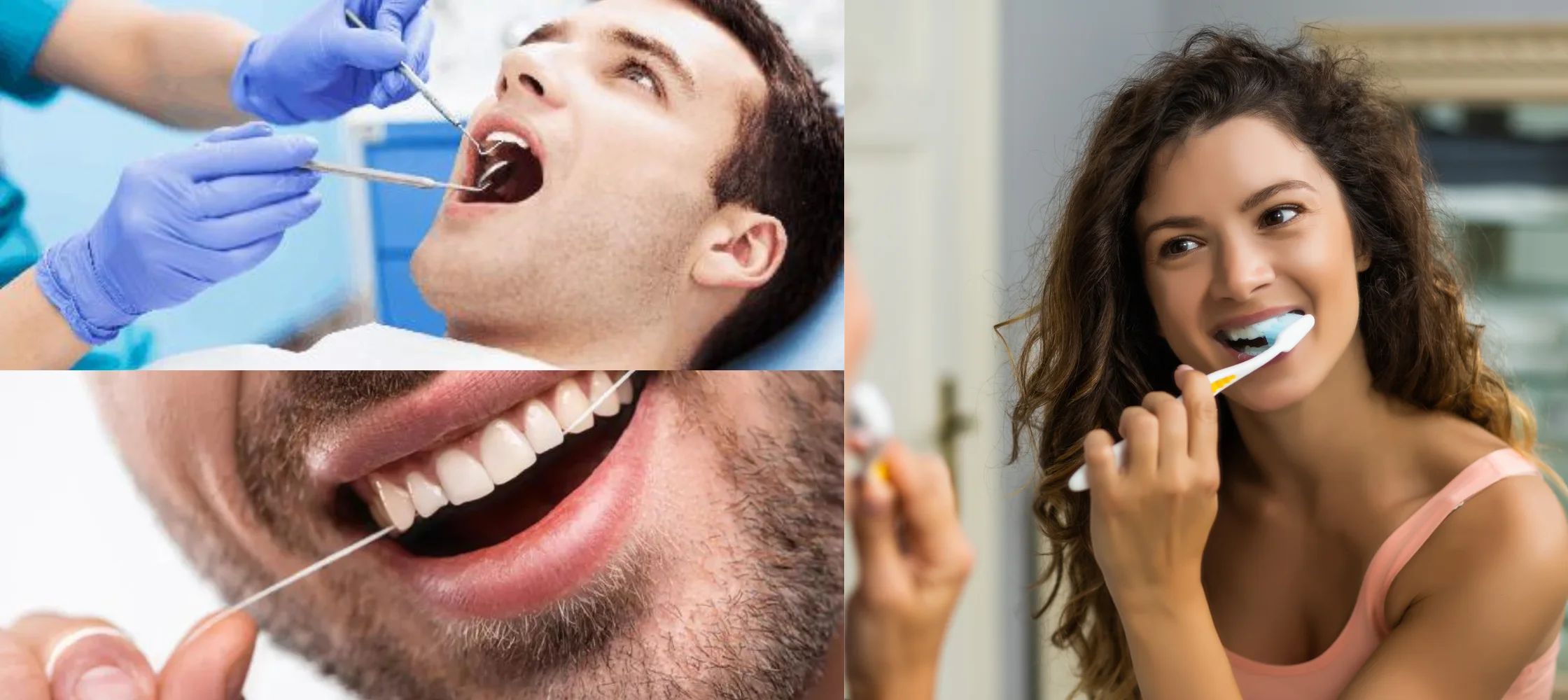
A radiant smile is not only aesthetically pleasing but also a reflection of good oral health. To achieve and maintain a healthy smile, two key factors come into play: practicing proper oral hygiene and scheduling regular dental check-ups. These fundamental practices form the foundation for a lifetime of optimal dental health.
1. A captivating smile begins with daily oral hygiene practices that include brushing and flossing. By diligently removing plaque, bacteria, and food particles, we reduce the risk of dental diseases such as tooth decay and gum disease. However, even with our best efforts, certain areas can be challenging to clean effectively. This is where professional dental cleanings and regular check-ups become indispensable.
2. Beyond the realm of prevention, regular dental check-ups provide a multitude of benefits. Dentists possess the expertise to detect early signs of dental issues that may go unnoticed by the untrained eye. Through comprehensive examinations and diagnostic tools like X-rays, they can identify potential problems lurking beneath the surface. By catching these issues in their early stages, dentists can intervene promptly, preventing further damage and ensuring appropriate treatment.
3. Moreover, dental check-ups serve as an opportunity for dentists to educate patients on personalized oral hygiene practices. They guide individuals on effective brushing and flossing techniques, recommend suitable oral care products, and emphasize the impact of diet and lifestyle choices on oral health. Empowered with this knowledge, we can take proactive measures to maintain our oral health, reducing the likelihood of dental problems between visits.
4. Regular dental check-ups also play a crucial role in monitoring the condition of existing dental work, such as fillings, crowns, or implants. Over time, wear and tear, changes in occlusion, or other issues may arise, compromising their integrity and functionality. By scheduling regular check-ups, dentists can identify and address these concerns promptly, ensuring the longevity and effectiveness of our dental restorations.
Furthermore, oral health is not isolated from our overall well-being. Research continues to uncover links between oral health and systemic conditions such as cardiovascular disease, diabetes, respiratory infections, and adverse pregnancy outcomes. Neglecting oral hygiene and leaving dental issues untreated can contribute to the development or exacerbation of these conditions. Regular dental check-ups, therefore, assume a critical role in maintaining not only oral health but also overall health.
Furthermore, maintaining oral hygiene and attending regular dental check-ups extends beyond the aesthetics and immediate benefits for our teeth and gums. Research has increasingly highlighted the intricate connection between oral health and our overall systemic health.
1. Numerous studies have demonstrated links between poor oral health and an increased risk of developing various systemic conditions. For example, gum disease has been associated with an elevated risk of cardiovascular disease, including heart attacks and strokes. The bacteria present in periodontal disease can enter the bloodstream, contributing to the formation of plaques in blood vessels and potentially leading to the narrowing of arteries.
2. Diabetes management is another area where oral health plays a significant role. Poor oral hygiene and untreated gum disease can make it more challenging to control blood sugar levels in individuals with diabetes. Conversely, uncontrolled diabetes can impair the body's ability to fight off infections, including oral infections, leading to an increased risk of gum disease and other oral health problems.
3. Respiratory infections, such as pneumonia, have also been linked to poor oral health. Bacteria in the mouth can be inhaled into the lungs, causing infections or exacerbating existing respiratory conditions. Maintaining good oral hygiene and addressing dental issues promptly can help reduce the risk of such infections, particularly in vulnerable populations such as the elderly or those with compromised immune systems.
4. Moreover, pregnant women should pay special attention to their oral health. Hormonal changes during pregnancy can make the gums more susceptible to inflammation and infection, leading to a condition known as pregnancy gingivitis. Additionally, severe gum disease has been associated with preterm birth and low birth weight. By prioritizing oral hygiene and receiving regular dental check-ups, pregnant women can minimize these risks and promote the well-being of both themselves and their babies.
It is evident that oral health is not an isolated component of our well-being but an integral part of our overall health. By maintaining good oral hygiene practices and attending regular dental check-ups, we can enhance our overall quality of life and reduce the potential burden of systemic health issues.
In conclusion, oral hygiene and regular dental check-ups are not mere recommendations but essential components of a comprehensive healthcare routine. By embracing these practices, we can prevent dental diseases, detect potential issues early on, and promote our overall well-being. Remember, a healthy smile is not only a reflection of good oral health but also an investment in our long-term systemic health. Make oral hygiene and dental check-ups a priority, and reap the rewards of a vibrant smile and a healthier you.
*Disclaimer: Above article is based on the information available through various sources. Always consult your doctor and/or health expert for advice.
Your email address will not be published. Required fields are marked *
29 Jan, 2024
29 Jan, 2024
29 Jan, 2024
25 Jan, 2024
Noel TASEUON
26 May, 2022
Helpful information Thankyou